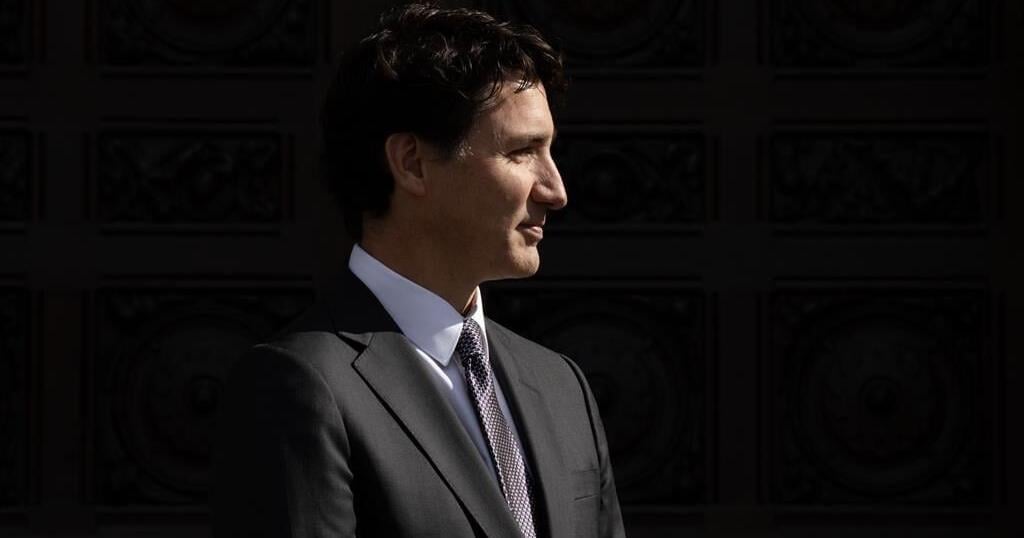MONTREAL – Prime Minister Justin Trudeau is accusing Quebec’s premier of saying things that he “knows aren’t true” about immigration as the two leaders continue to clash over the issue.
His response comes after Premier François Legault last week asked the Bloc Québécois to support a Conservative non-confidence motion to topple the government on the grounds the federal Liberals haven’t acted strongly enough to reduce temporary immigration in Quebec.
“It is a shame to hear the (premier) of Quebec sharing things and declarations on immigration that he simply knows are not true,” Trudeau said in Montreal on Thursday alongside French President Emmanuel Macron.
“We have worked together constructively, or we have certainly worked with members of his team constructively, over the past many, many months to take action in response to the challenges around immigration in Quebec.”
Despite the Bloc’s refusal to vote against the Liberals in the confidence vote, Legault has suggested immigration should be a ballot-box question in the next federal election. He has asked all the parties to commit to cutting the number of non-permanent residents to his province by half.
Trudeau said Thursday that his government has worked to limit the number of newcomers by closing a popular pathway used by asylum seekers, by re-imposing a visa requirement on visiting Mexican nationals, and by moving to limit the numbers of new temporary workers and international students arriving in the country.
Trudeau said that while his government has acted, his provincial counterpart has yet to present a plan for how to reduce the temporary workers that fall under provincial jurisdiction.
“I asked Mr. Legault to give us a plan, his plan, particularly on temporary foreign workers here in Quebec,” Trudeau said. “And many, many months later, we are still waiting to see what his plan is for his responsibilities around temporary immigration here in Quebec.”
Legault has previously said that in the last two years, the number of temporary immigrants in Quebec has doubled to 600,000 from 300,000, which he says is putting pressure on housing, schools and public services.
The Quebec premier last month announced a six-month freeze on certain low-wage temporary foreign worker applications in Montreal, but admitted that the move would only reduce the numbers by about 3,500.
He has asked Trudeau to reduce the number of non-permanent residents that are under federal jurisdiction from about 420,000 to 210,000, and has also repeatedly called for Ottawa to hand over more powers to Quebec over immigration.
Legault was also in Montreal Thursday for his own meeting with Macron, but did not answer reporters’ questions on the way out.
This report by The Canadian Press was first published Sept. 26, 2024.
